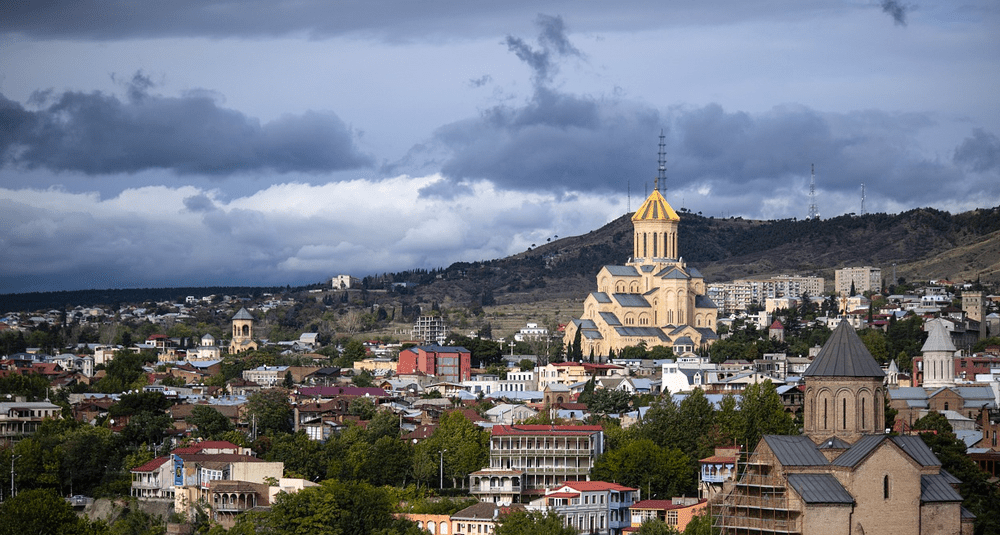What is the capital of Georgia?
Last Updated:
Tbilisi, the capital of Georgia, lies on the banks of the River Kura (or Mtkvari), at the strategic crossroads of Eastern Europe and Western Asia. The city, whose history dates back some 1,500 years, was founded in the 5th century by King Vakhtang I Gorgasali, who, according to legend, discovered a hot spring while hunting. The name Tbilisi derives from the Georgian word tbili, meaning hot, in reference to these thermal springs.
Over the centuries, Tbilisi has been an important commercial and cultural center, thanks to its location on the Silk Road. This position made it a target for many invaders, including the Persians, Byzantines, Arabs and Mongols, all of whom left their mark on the city and its architecture. In the 18th century, Tbilisi was under the domination of the Ottoman and Persian empires, before becoming part of the Russian Empire in the 19th century.
Tbilisi’s architecture is a fascinating blend of medieval, neoclassical, Art Nouveau, Soviet and contemporary styles. The Old Town, with its narrow streets, colorful houses with wooden balconies and ancient churches, is a living testimony to the city’s complex history. The Cathedral of the Holy Trinity, also known as Sameba, is one of the largest Orthodox churches in the world. The Peace Bridge, a modern bridge of glass and steel, symbolizes the fusion of old and new.
Georgian culture is deeply rooted in the city of Tbilisi. The city is the center of music, dance and the arts in Georgia, with numerous theaters, museums and galleries. The famous Georgian traditional dance and vocal polyphony, both UNESCO intangible cultural heritage sites, are at the heart of Tbilisi’s cultural identity. The city is also a center of education and science, with several renowned universities.
Tbilisi enjoys a humid subtropical climate, with hot summers and moderately cold winters. The surrounding hills and mountains of the Caucasus offer the city spectacular views and varied natural landscapes, making it a popular tourist destination.
In 1991, following the collapse of the Soviet Union, Tbilisi became the capital of independent Georgia. Since then, the city has undergone a rapid transformation, developing its infrastructure and opening up to international tourism. Although Tbilisi has experienced difficult times, particularly during the post-Soviet conflicts, it has managed to recover and modernize while preserving its historical heritage.
Today, Tbilisi is a dynamic metropolis that attracts not only tourists, but also investors and designers, thanks to its cosmopolitan atmosphere and unique blend of ancient traditions and modernity. The tourism sector is booming, with visitors coming to discover the city’s historical heritage, delicious Georgian cuisine, traditional sulfur baths and lively festivals.
Tbilisi is much more than just a Georgian capital, it’s a city where history and culture mingle with innovation and modernity. The capital is a living witness to the past, yet resolutely focused on the future.
You may also be interested in
geography

What is the capital of Georgia?
Answer
Tbilisi is the capital of Georgia, located at the crossroads of Europe and Asia, with a rich history spanning more than 1,500 years.